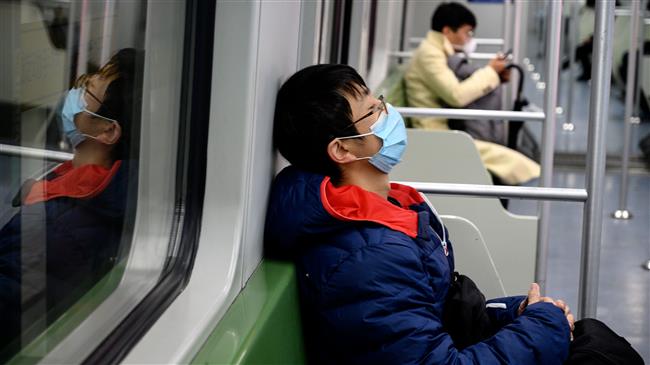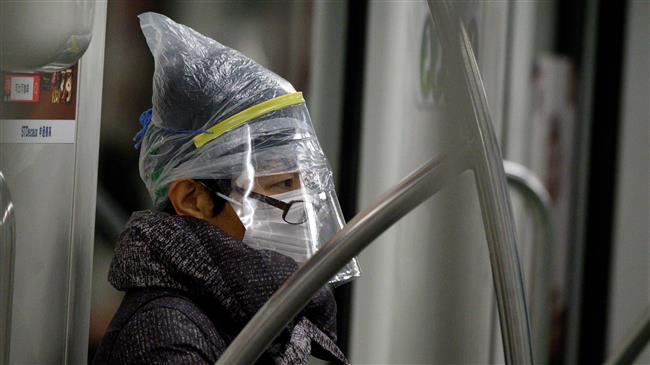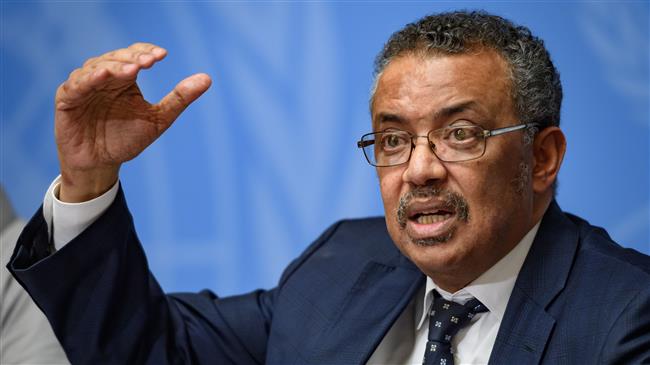China virus death toll nears 1,400, six health workers among victims
The death toll from China's virus epidemic neared 1,400 on Friday, with six medical workers among the victims, underscoring the country's struggle to contain a deepening health crisis.
Nearly 64,000 people are now recorded as having fallen ill from the virus in China, with officials revealing that 1,716 health workers had been infected as of Tuesday.
The scale of the epidemic swelled this week after authorities in central Hubei Province, the epicenter of the contagion, changed their criteria for counting cases, adding thousands of new patients to their tally.
The health emergency in China has caused fears of further global contagion, with more than two-dozen countries reporting hundreds of cases among them. Three people have died outside mainland China.
The majority of cases of infections among health workers was in Hubei's capital, Wuhan, where many have lacked proper masks and gear to protect themselves in hospitals dealing with a deluge of patients.
Battling the epidemic is a "big test for the country's governance system and governance ability," said Chinese President Xi Jinping, who chaired a political meeting on government reforms, according to state broadcaster CCTV.
The outbreak has exposed "shortcomings," Xi acknowledged, adding that China needed to reform its public health and epidemic prevention and control systems.
New count
Authorities in Hubei on Thursday started counting patients who were "clinically diagnosed" via lung imaging, in addition to those who undergo lab tests.
The revision added nearly 15,000 patients to Hubei's count in a single day, with officials explaining that past cases were included. The first cases emerged in December last year in Wuhan.
On Friday, Hubei's health commission said another 116 people had died and more than 4,800 new cases were reported. Of those cases, more than 3,000 were "clinically diagnosed."
The WHO said the numbers included cases going back weeks.
The sharp one-day increase "does not represent a significant change in the trajectory of the outbreak," said Michael Ryan, head of the WHO's health emergencies program.
The move will ensure patients get treated as early as possible, instead of having to wait for laboratory tests, health officials said.
"There have been some backlogs in testing and this is also going to help in ensuring that people get adequate care," Ryan said.
The National Health Commission said the new criteria would only apply to Hubei.
The commission reported five other deaths and 217 new cases elsewhere in China, as the number of new patients outside Hubei fell for a 10th straight day.
It also disclosed a statistical error, saying it removed 108 previous deaths in Hubei that had been double-counted. The nationwide toll still rose to 1,380.
Authorities have placed some 56 million people in Hubei under quarantine since late last month, in an unprecedented effort to stop the new coronavirus from spreading.
Some cities in Hubei tightened restrictions this week, sealing off neighborhoods in what they liken to "war-time" measures.
Several countries have banned arrivals from China, while major airlines have halted flights to and from the country.
(Source: AFP)
At least 10,400 Palestinians held in Israeli prisons: Report
US House passes ICC sanctions bill to protect Israeli war criminals
Netanyahu not invited to Trump’s inauguration, aide says
Jan. 9: ‘Axis of Resistance’ operations against Israeli occupation
VIDEO | Press TV's news headlines
Gaza death toll 40% higher than recorded, Lancet study estimates
VIDEO | Lebanon elects new president
Scores killed as US, Turkish proxies clash in northern Syria













 This makes it easy to access the Press TV website
This makes it easy to access the Press TV website